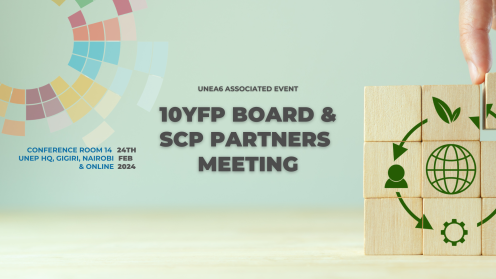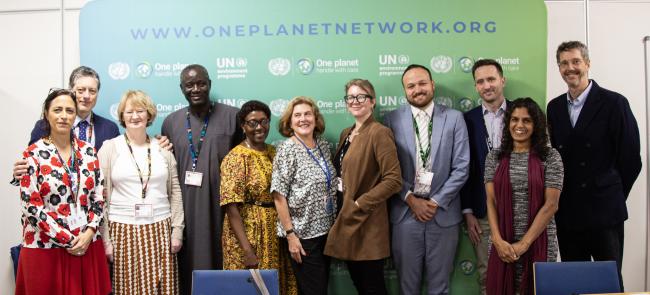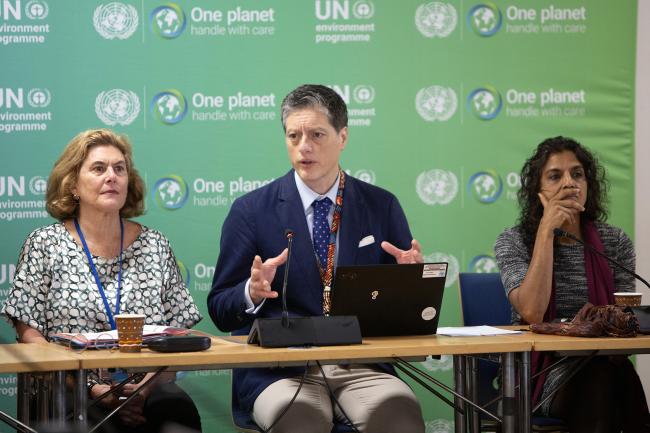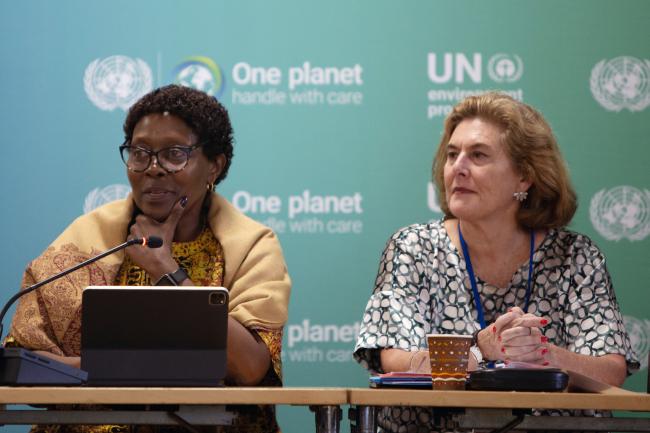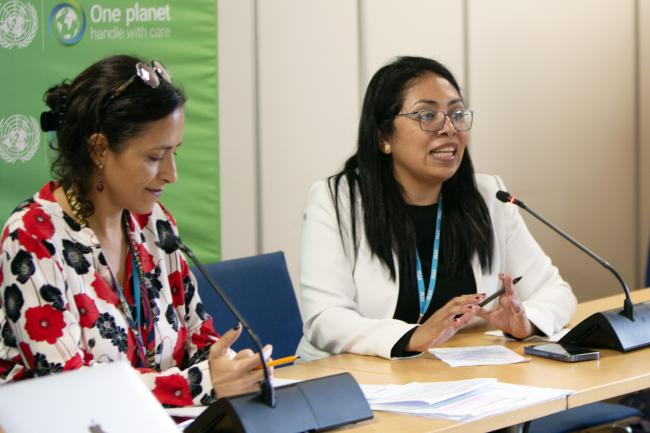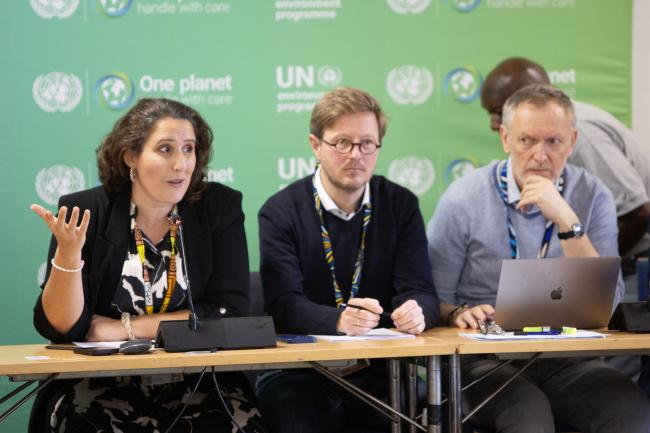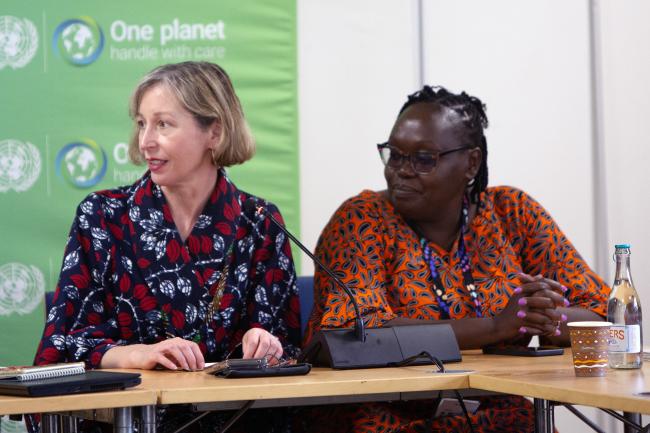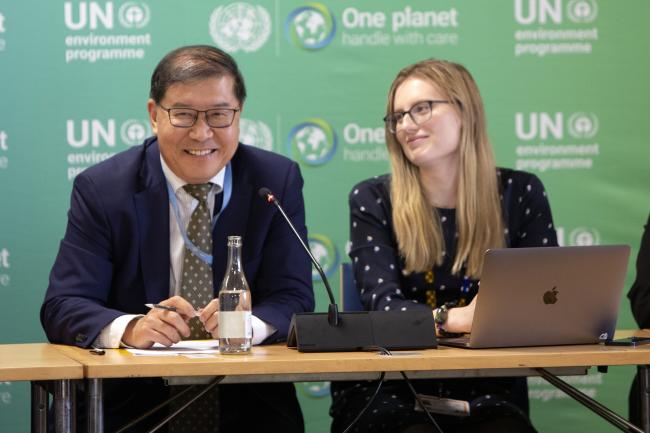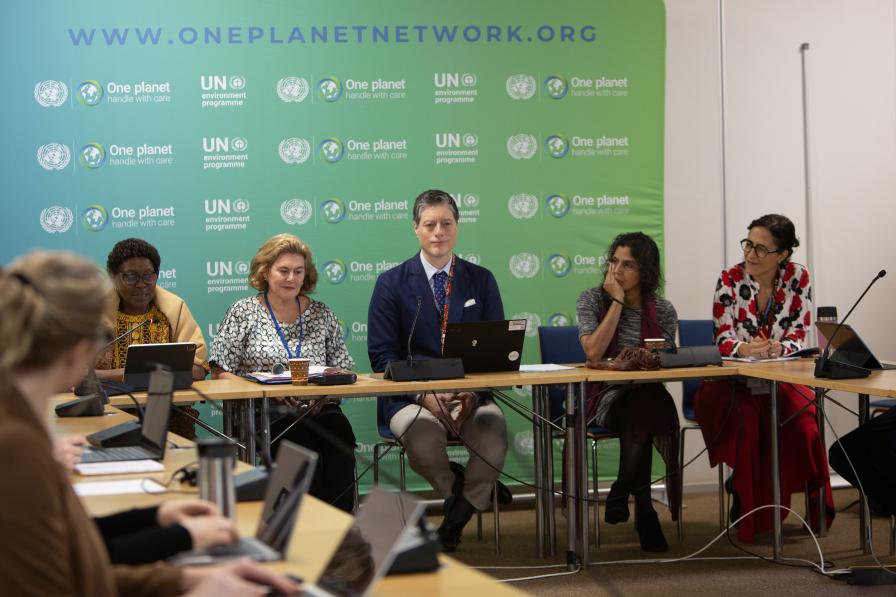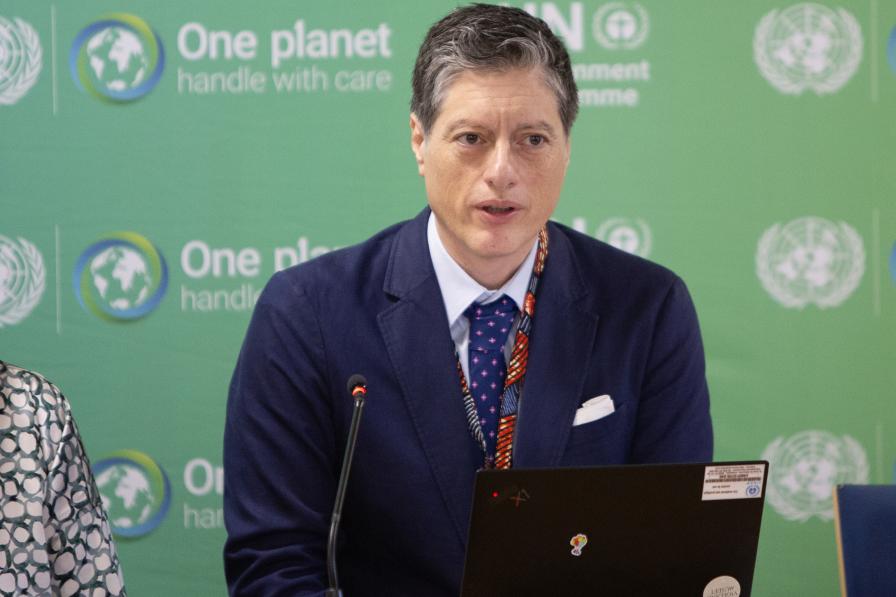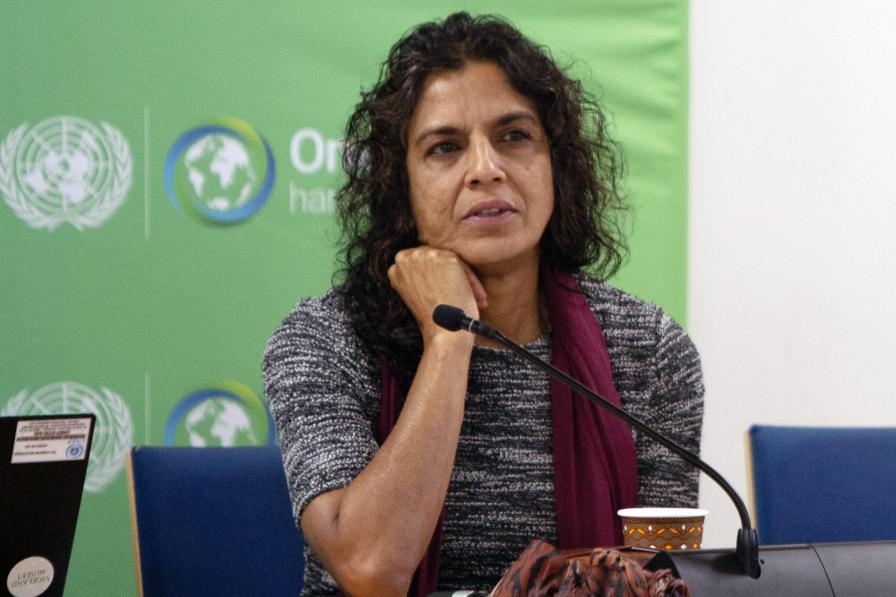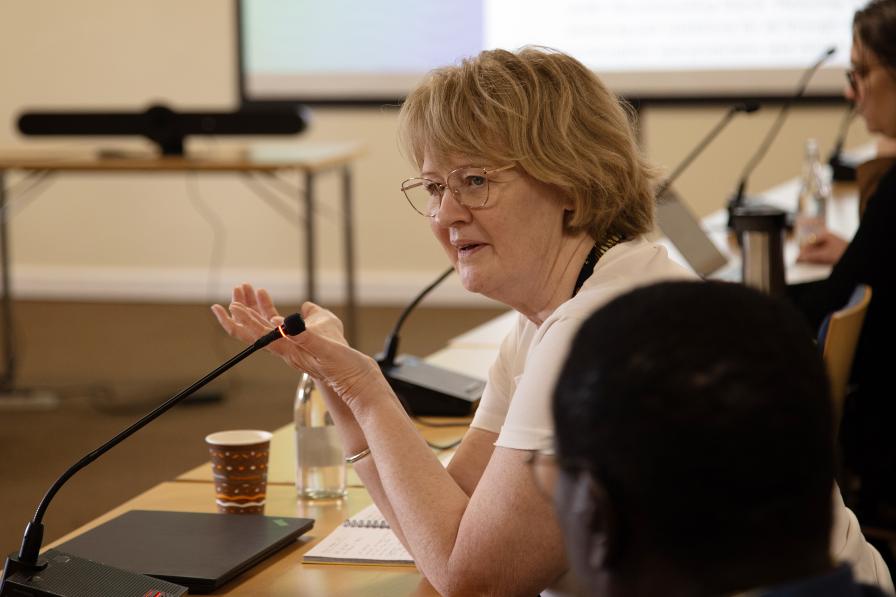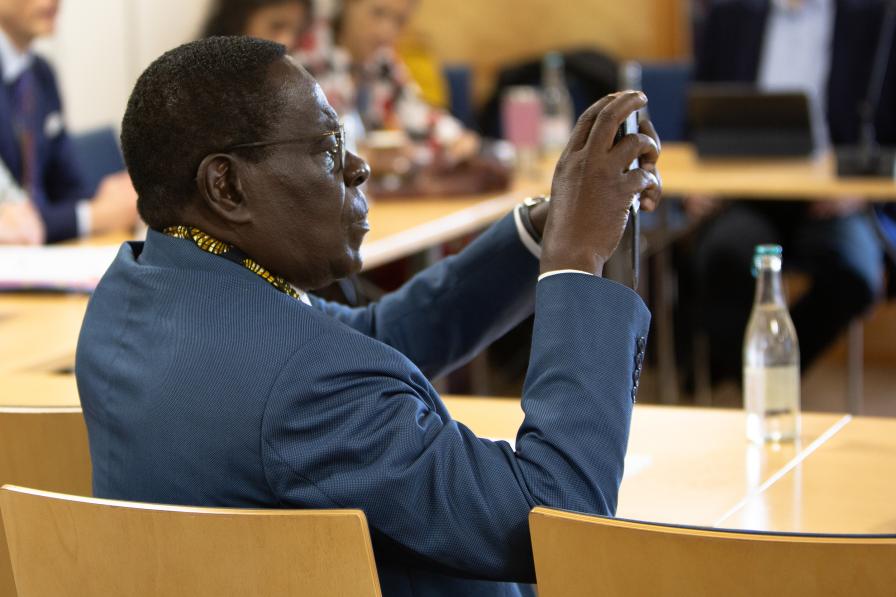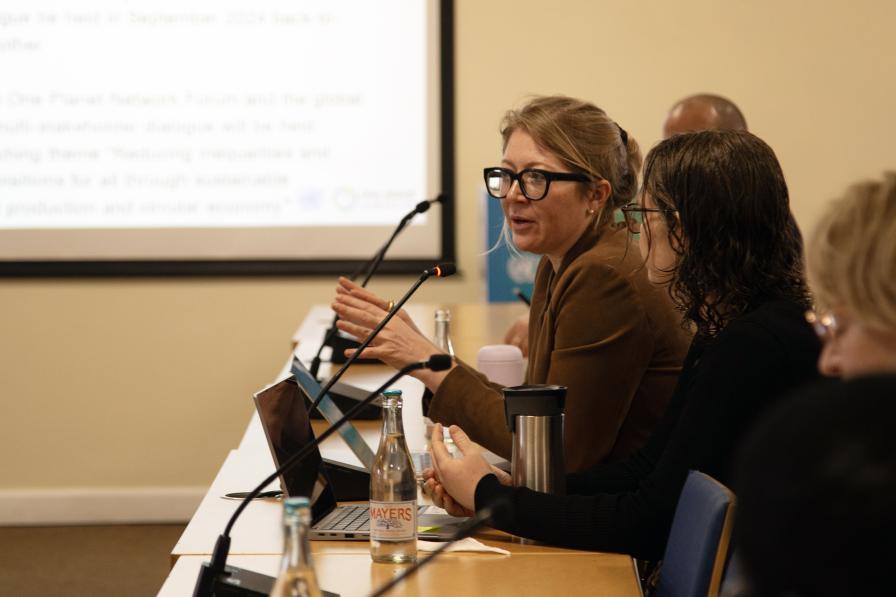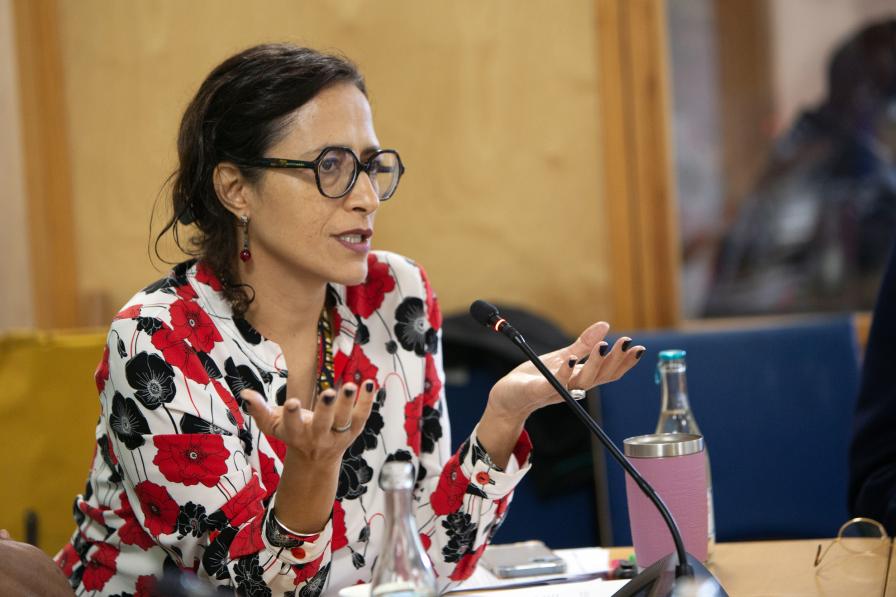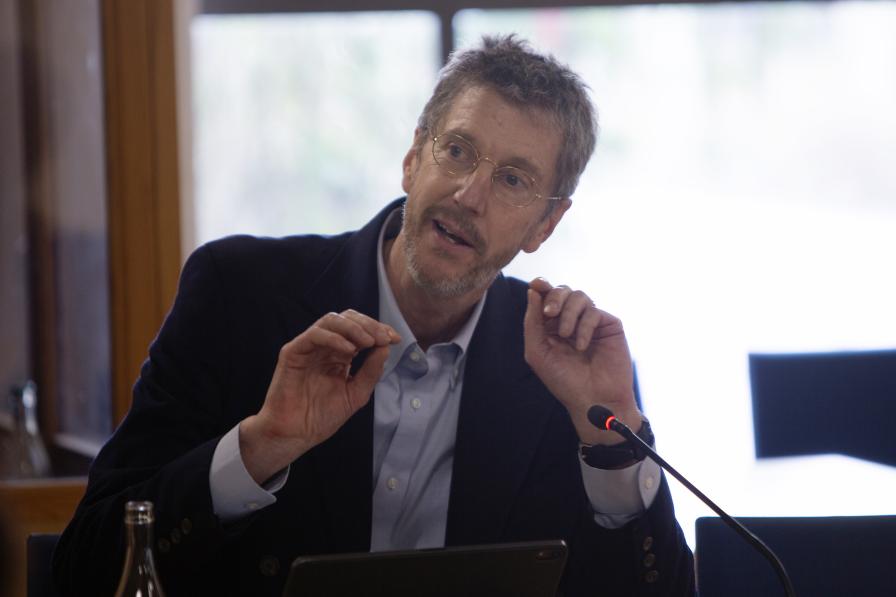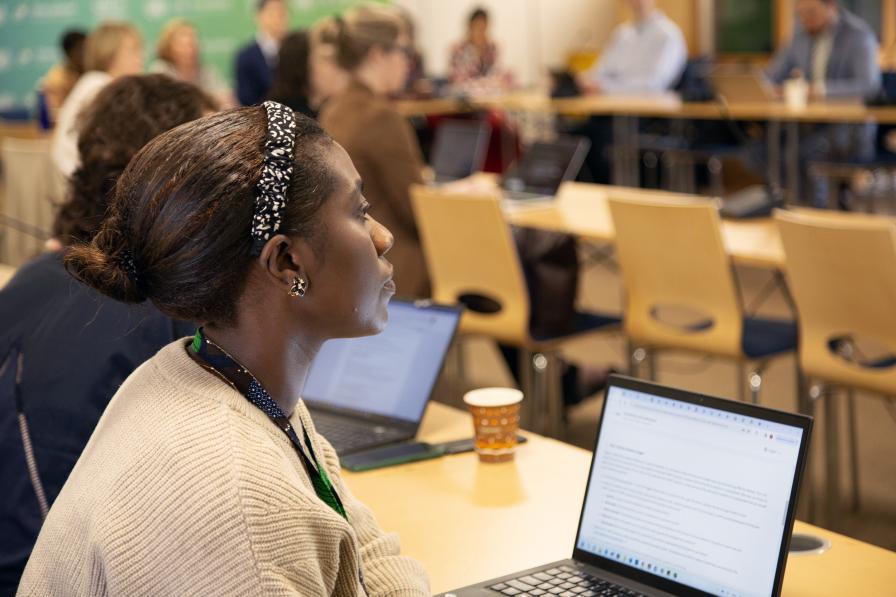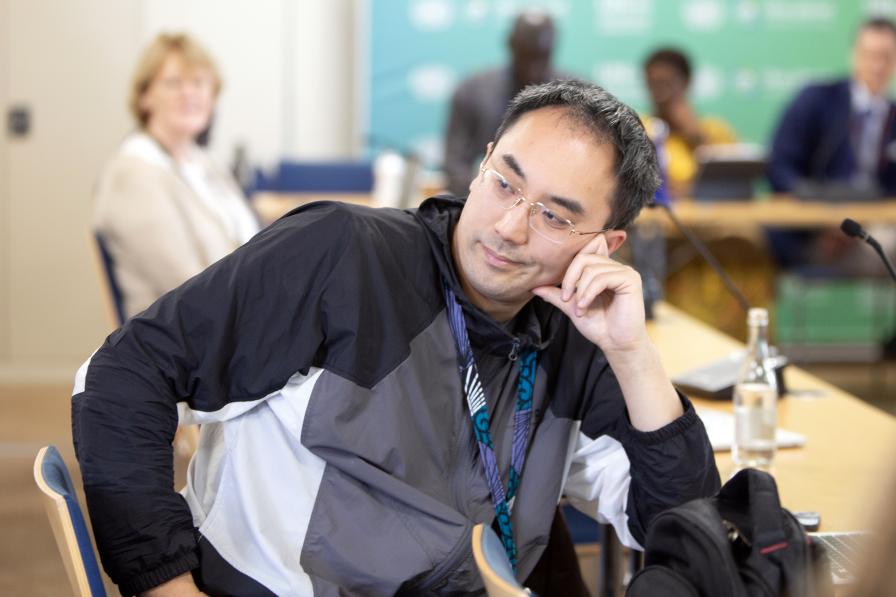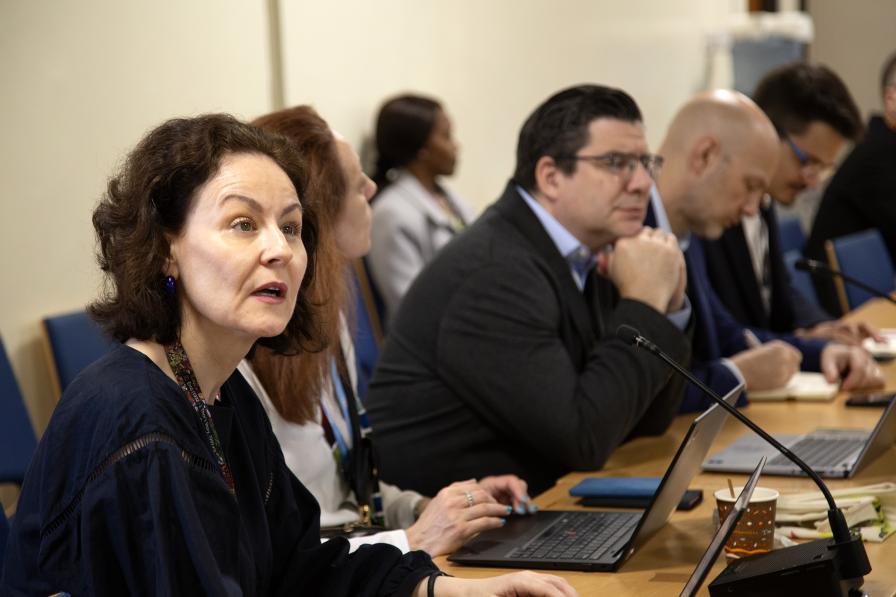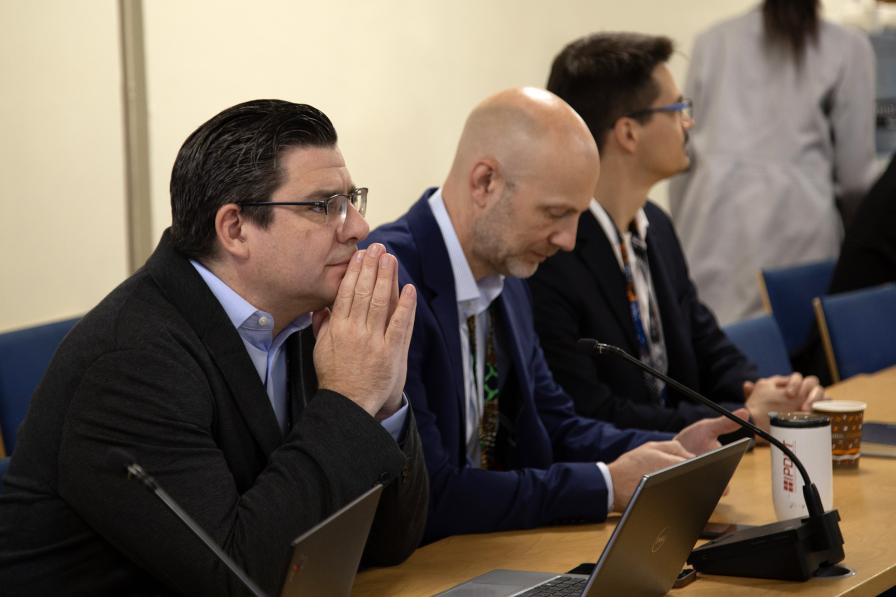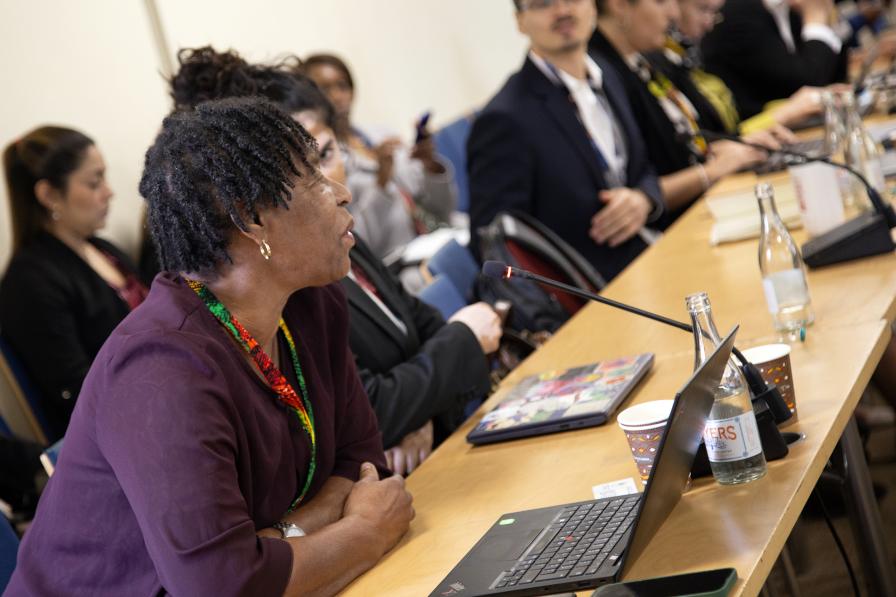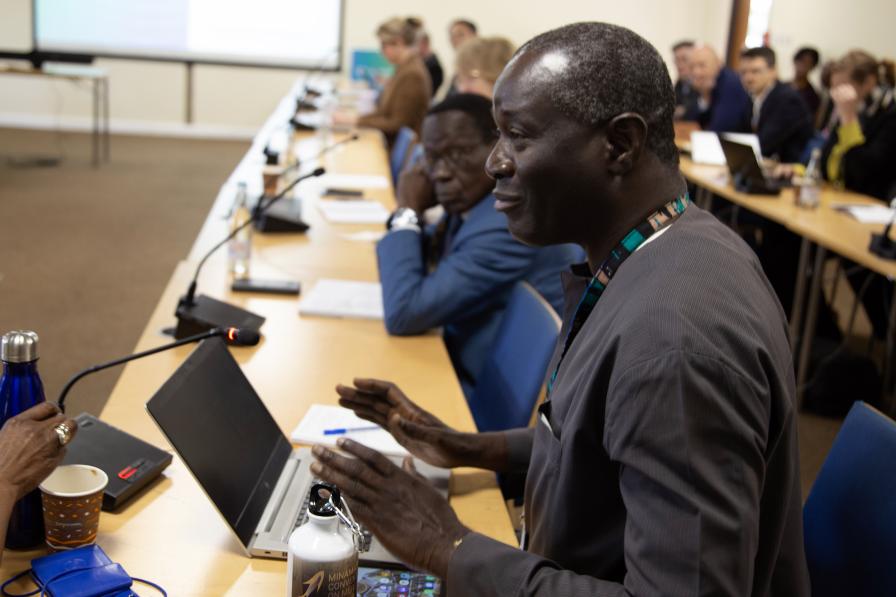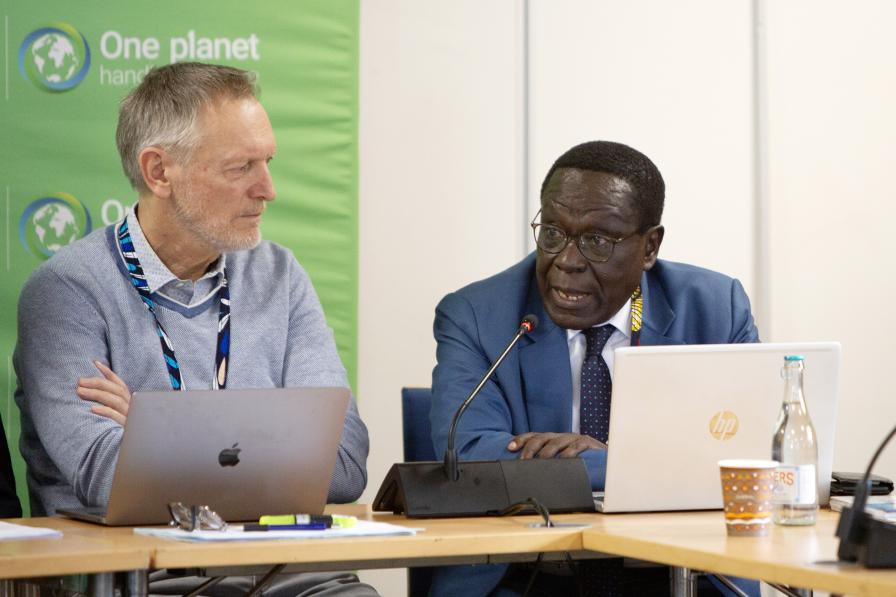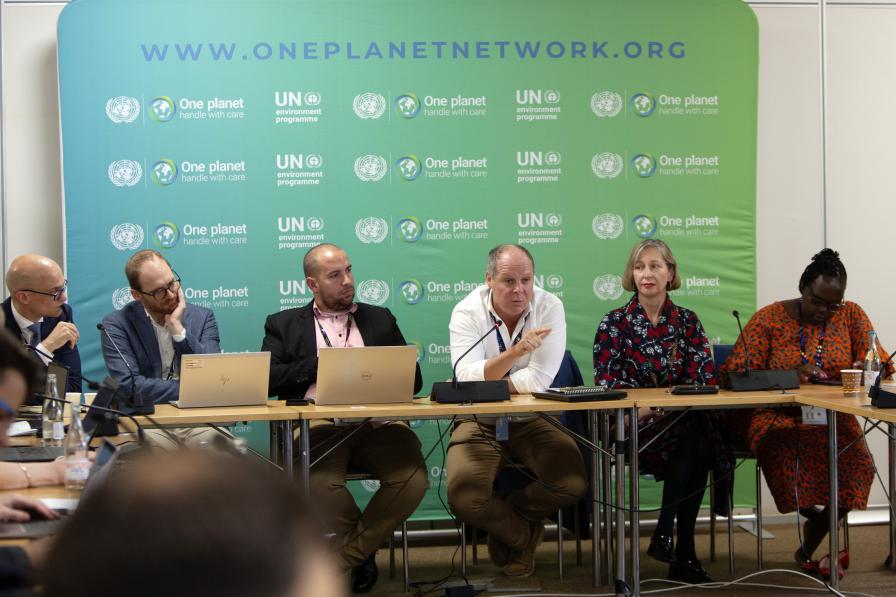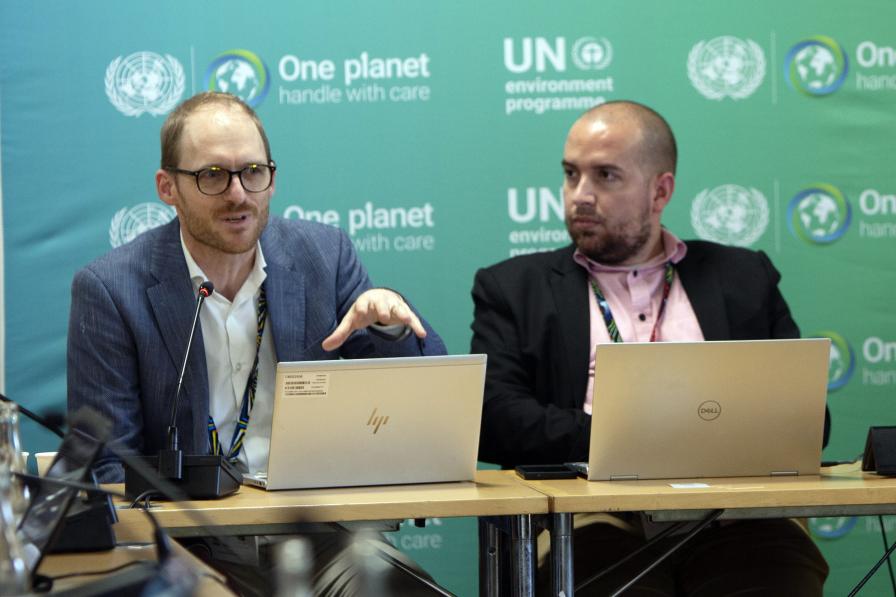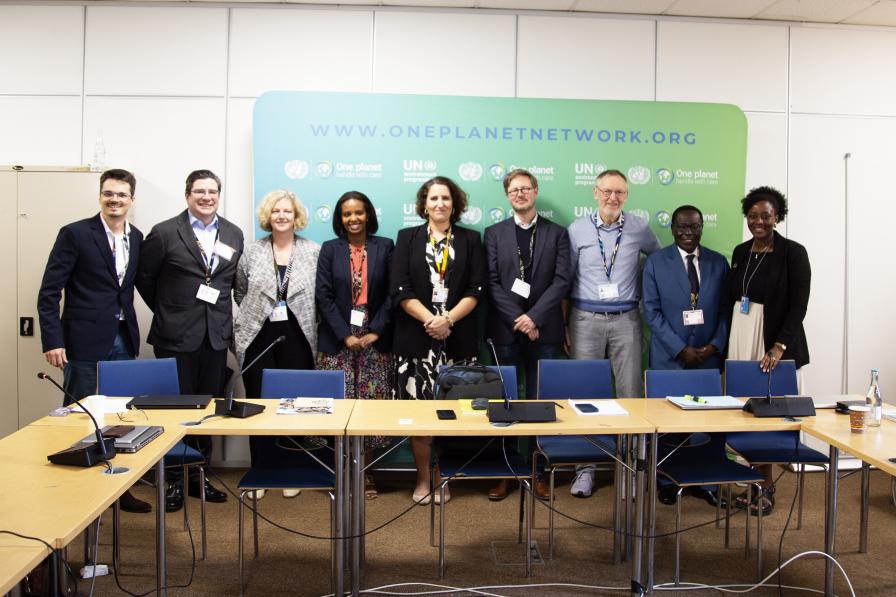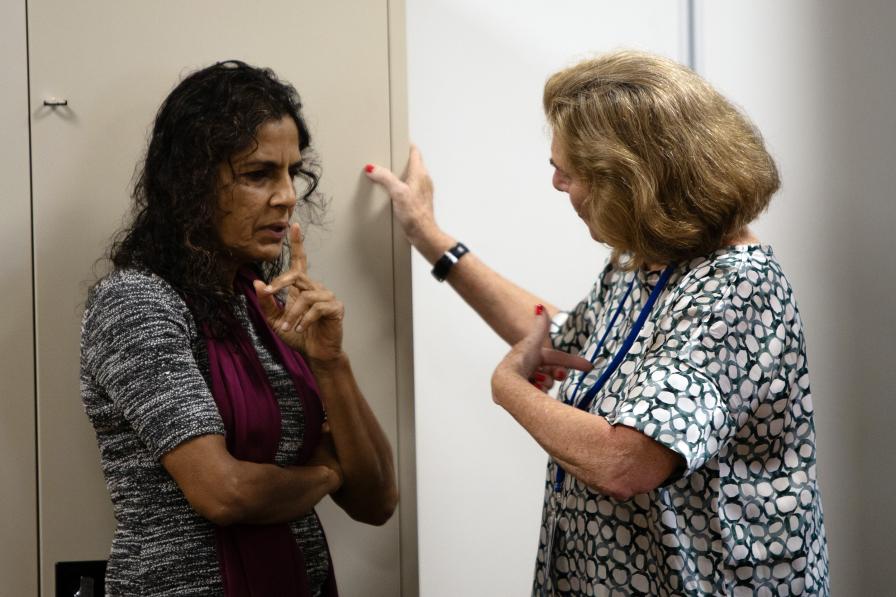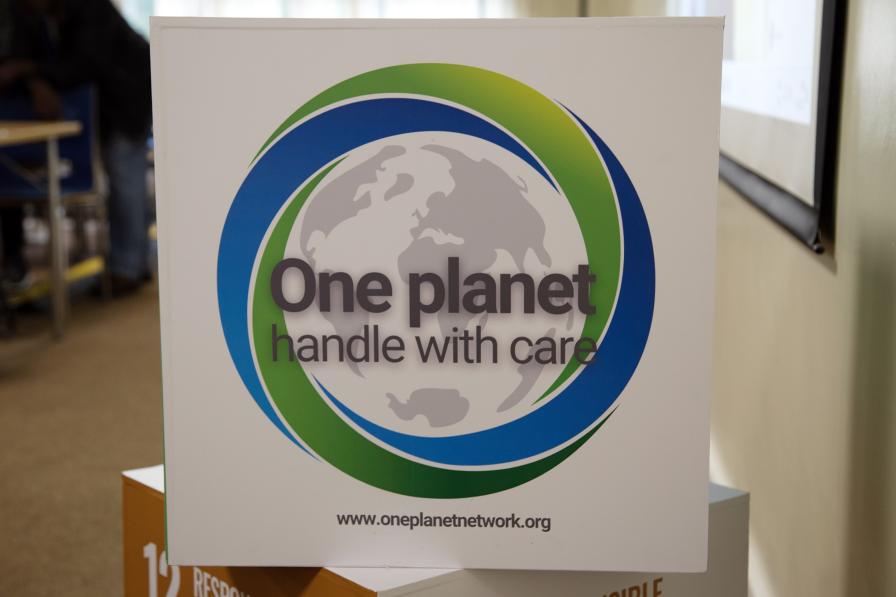“We are running out of time to tackle the triple planetary crises of climate change, biodiversity loss and pollution, and sustainable consumption and productivity touches everything we do because as a planet we are living beyond our means.” With these words, Elizabeth Mrema, Deputy Executive Director, UN Environment Programme (UNEP), welcomed the Board members of the 10-Year Framework Programme (10YFP) to UNEP’s Headquarters where they started a series of meetings with a meeting of the Board Members. Jorge Laguna-Celis, Head of the 10YFP Secretariat, updated Members on priority activities included in the Framework and Budget for 2023-2024. He highlighted the launch of the Building Circularity into Nationally Determined Contributions (NDCs) – A Practical Toolbox, a user guide and digital toolbox to support countries to assess, prioritize, implement and track circular economy interventions for increased ambition and implementation of their NDCs. This was followed by a lengthy discussion about the venue and appropriate timing of the first Global Dialogue on Sustainable Consumption and Production (SCP), where agreement was reached to host a brief virtual session in March to finalize the details.
Thematic Session I: Towards a Global Dialogue on Sustainable Consumption and Production
During the first thematic session, panelists unpacked the steps towards the Global Dialogue on SCP, and highlighted the importance of:
- hosting the Global Dialogue and keeping in mind achievement of the 2030 targets;
- youth’s role since they will better frame SCP by making circularity more relevant to communities that are most affected by the triple planetary crises;
- sharing the experiences of countries, such as Senegal and Nigeria, who have learned many lessons around introducing the concept of a circular economy in some of their industries; and
- having wider stakeholder engagements since many solutions exist, including solid waste management and how local women practice circularity in agriculture.
Thematic Session II: Leveraging Digital Standards and Tools for Sustainable Consumption and Production
In this session, organized in partnership with the UN Industrial Development Organization (UNIDO) and International Telecommunication Union (ITU), and moderated by Adriana Zacarias Farah, Head of Global Opportunities for SDGs (GO4SDGs) and Deputy Head, One Planet Network, UNEP. The importance of developing standards for digitization was discussed by panelists.
In an opening address, UNEP’s Chief Digital Officer, Sally Golestan emphasized the need for ensuring quality of data, interoperability, data governance, and affordability and access to data. In a virtual keynote presentation, Ken Webster, Founder, Society for the Circular Economy, cautioned about the financial conditions to accelerate the transition to circular economies, noting that finance is oriented to use short-term data, focused on assets, and done through blended finance. He said that governments tend to de-risk the investments of companies.
Thematic Session III: Business Commitments to Implement Sustainable Consumption and Production and Circular Economy and Measure Progress through a Global Circularity Protocol for Business
In the afternoon, a session was held in partnership with the World Business Council for Sustainable Development (WBCSD), with Inês dos Santos Costa, Sustainability and Climate, Circularity Leader for Public Sector, Deloitte Central Europe, moderating the event.
Panelists shared experiences from their respective positions, including:
- the need for commitment to standards as part of the Protocol;
- resourcing the Protocol appropriately;
- renewing existing legal frameworks or developing new ones;
- developing new business models; and
- finding ways to develop financial mechanisms for the informal economic sector and small and medium enterprises.
Thematic session IV: Accelerating Actions Towards the Implementation of Food Systems Transformation Targets
This session was organized with the One Planet Network’s Sustainable Food Systems Programme, World Wide Fund for Nature, and UNIDO, and moderated by Adam Gerstenmier, Executive Director, Food Action Alliance, who reminded participants how the conversation around food systems has grown over the past decade. Certain sectors were highlighted, such as the sugarcane industry in Cuba and Brazil and the importance of scaling up circularity in these sectors. Other examples included small-scale farming by women in Kenya and experiences in Canada, where agricultural practices were increasingly reducing waste, tilling and toxic chemicals.
Thematic Session V: Promoting Scientific and Data-Driven Approaches to Promote SCP: Closing the SDG Data Gap and Accelerating the Implementation of the Circular Economy
During the final session of the day, panelists described examples of how countries are using big data and disaggregated data to close the SDG data gap and to support their transition towards circular economies. They agreed on the advantages of harnessing the power of big data, especially to assess SDG progress in countries. Other interventions focused on the role of data in quantifying resources and resource extraction, monitoring waste and pollution levels, optimizing agricultural practices, urban planning in city design for energy efficiency, and identifying the ideal locations for solar and wind energy production.
To receive free coverage of global environmental events delivered to your inbox, subscribe to the ENB Update newsletter.
All ENB photos are free to use with attribution. For 10YFP SCP please use: Photo by IISD/ENB - Ángeles Estrada
Selected Photos
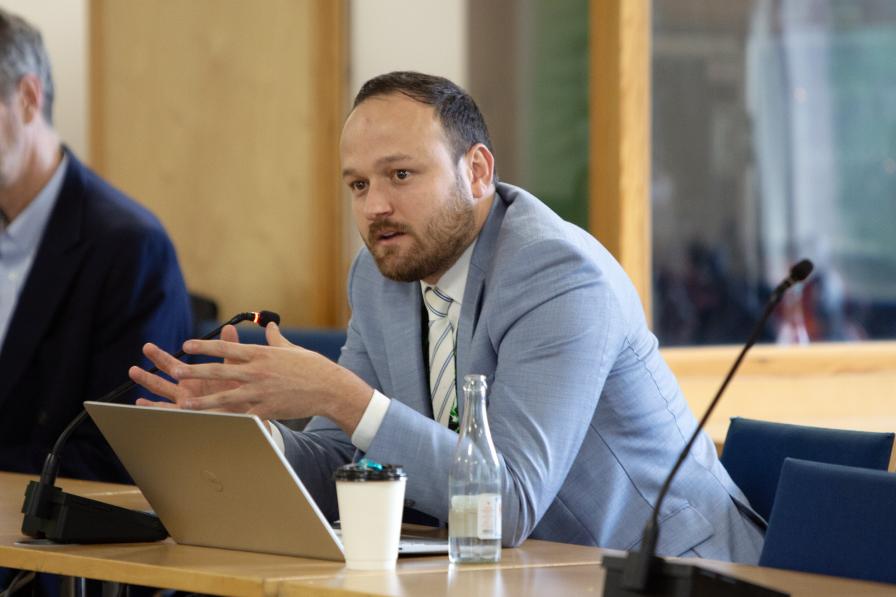
Brazil proposed hosting the Global Dialogue on Sustainable Consumption and Production in September 2024 in Rio de Janeiro.
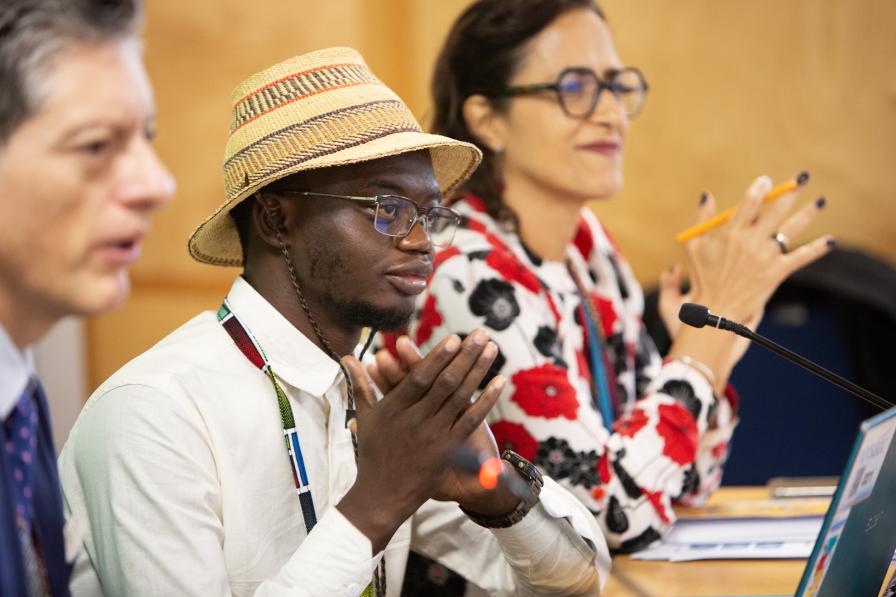
Ibrahim Tuzee Abdul-Raheem, Global Focal Point, SCP Youth Platform - Youth Constituency of UN One Planet Network, Major Group for Children and Youth (MGCY)
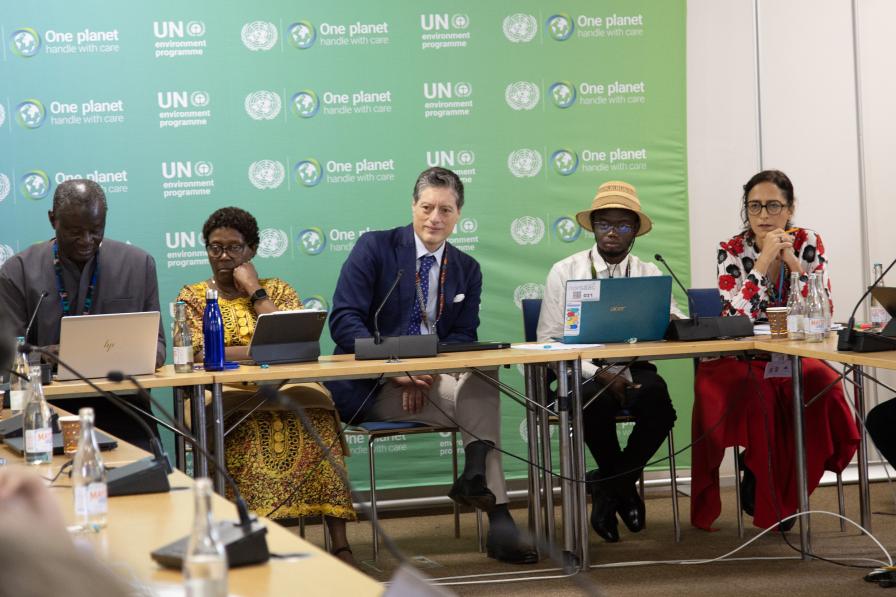
(L-R) Cheikh Fofana, Deputy Director, Ministry of Environment and Sustainable Development of Senegal; Elizabeth Mrema, Deputy Executive Director, UNEP; Jorge Laguna Celis, Head of One Planet Network, UNEP; Ibrahim Tuzee Abdul-Raheem, Global Focal Point, SCP Youth Platform - Youth Constituency of UN One Planet Network, MGCY; and Adriana Zacarias Farah, Head of GO4SDGs and Deputy Head One Planet Network, UNEP
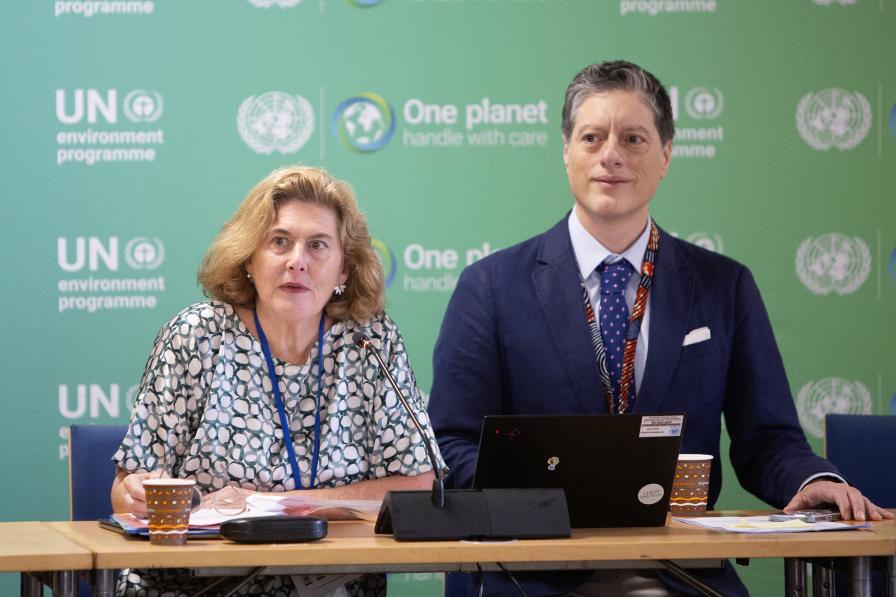
Giovanna Valverde, Co-Chair of the 10YFP Board, and Jorge Laguna-Celis, Head of the 10YFP Secretariat
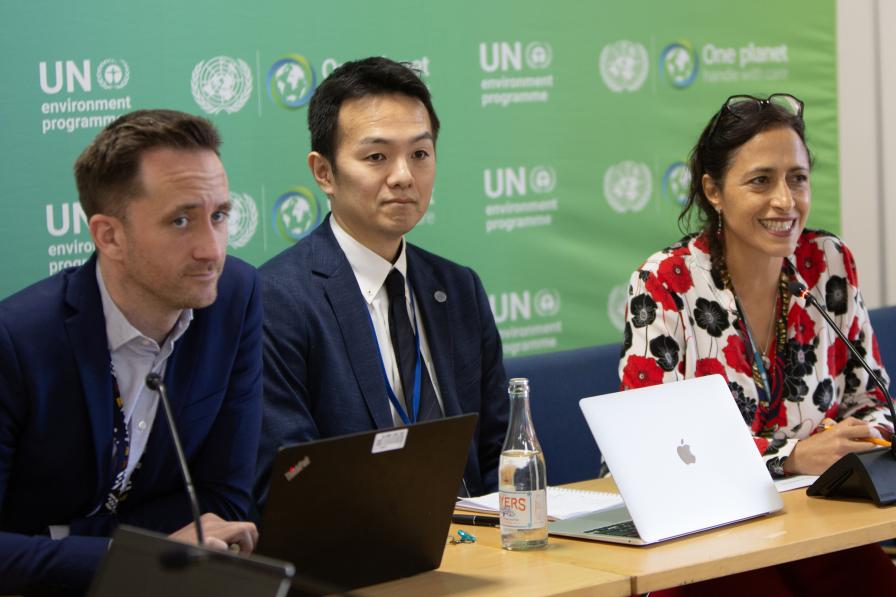
(L-R) Christoffer Back Vestli, International Environmental Relations, EC; Tomoyoshi Koume, Industrial Development Officer, UNIDO; and Adriana Zacarias Farah, UNEP
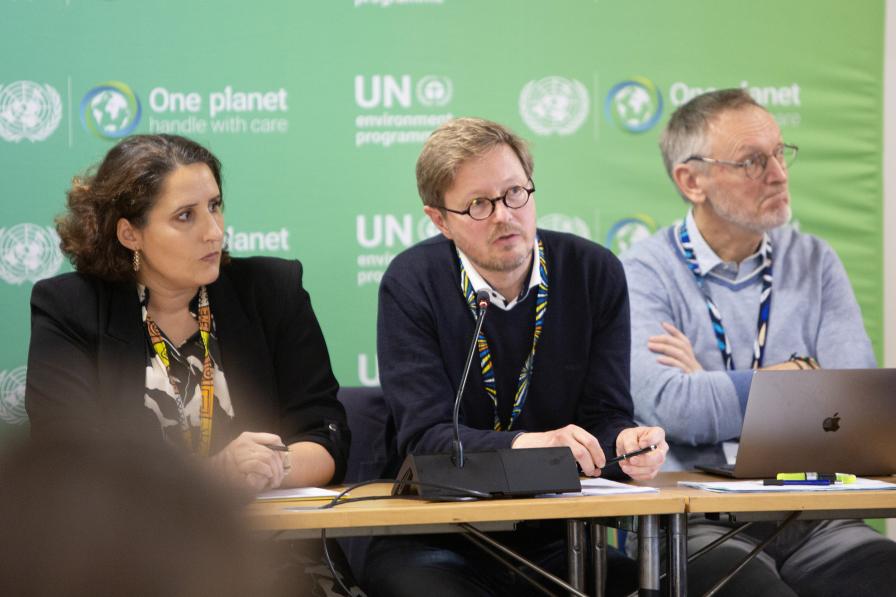
L-R: Inês dos Santos Costa, Sustainability and Climate, Circularity Leader for Public Sector, Deloitte Central Europe; Robert Metzke, Senior Vice President & Global Head Sustainability Royal Phillips; and Janez Potočnik, Co-Chair of the International, Resource Panel
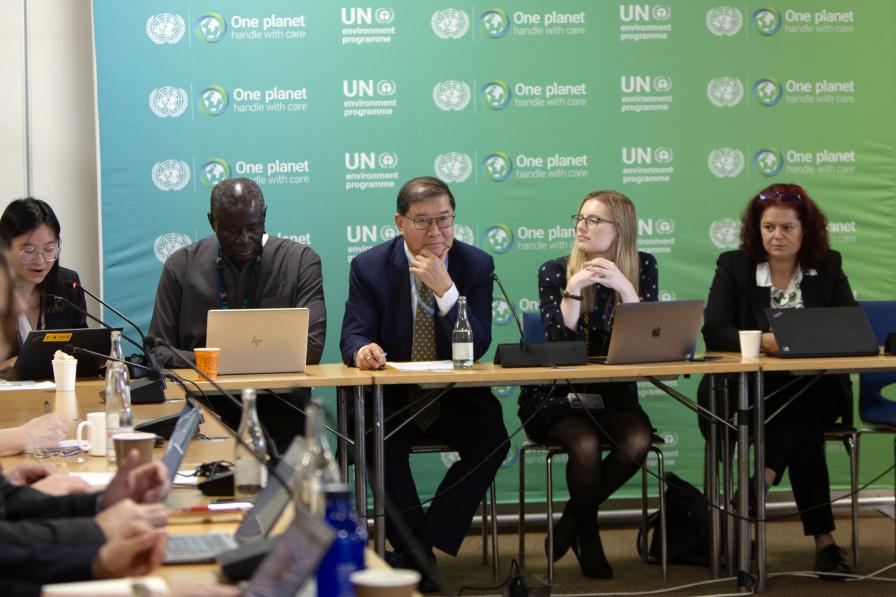
L-R: Session Moderator Ruoxi Li, Associate Expert, UNEP; Cheikh Fofana, Deputy Director, Ministry of Environment, Sustainable Development and Ecological Transition, Senegal; Jian Liu, Director of Early Warning and Assessment Division, UNEP; Shannon Eileen Lisa, Chemicals and Waste Youth Platform, Major Group for Children and Youth; and Therese El Gemayel, Circularity Project Manager, UNEP
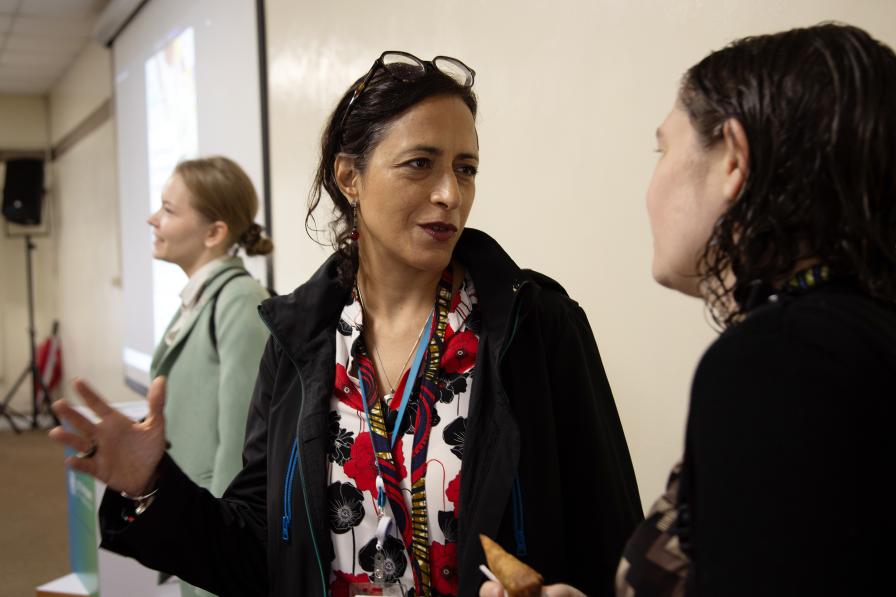
Adriana Zacarias Farah, Head of GO4SDGs and Deputy Head One Planet Network, UNEP, confers with a participant
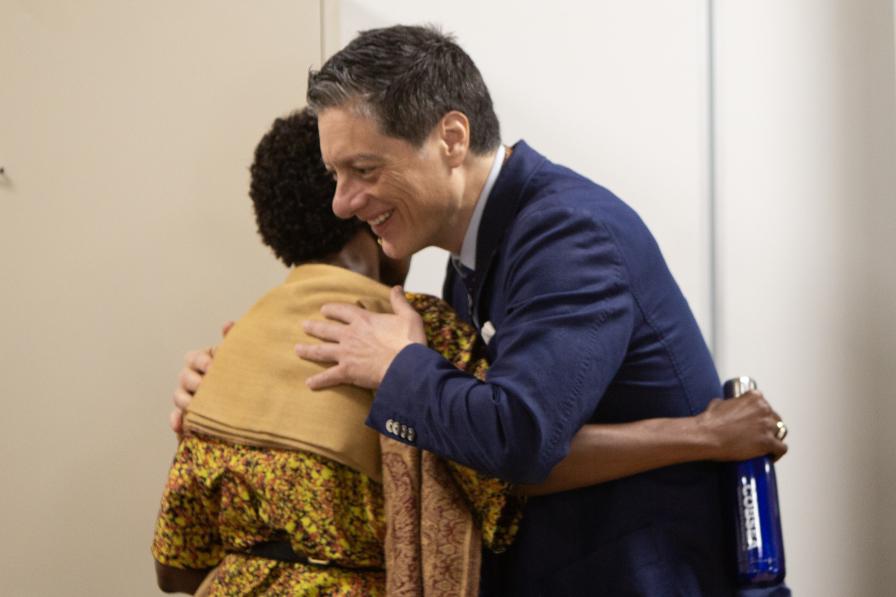
Elizabeth Maruma Mrema, Deputy Executive Director, UNEP, and Jorge Laguna-Celis, Head of the 10YFP Secretariat, UNEP
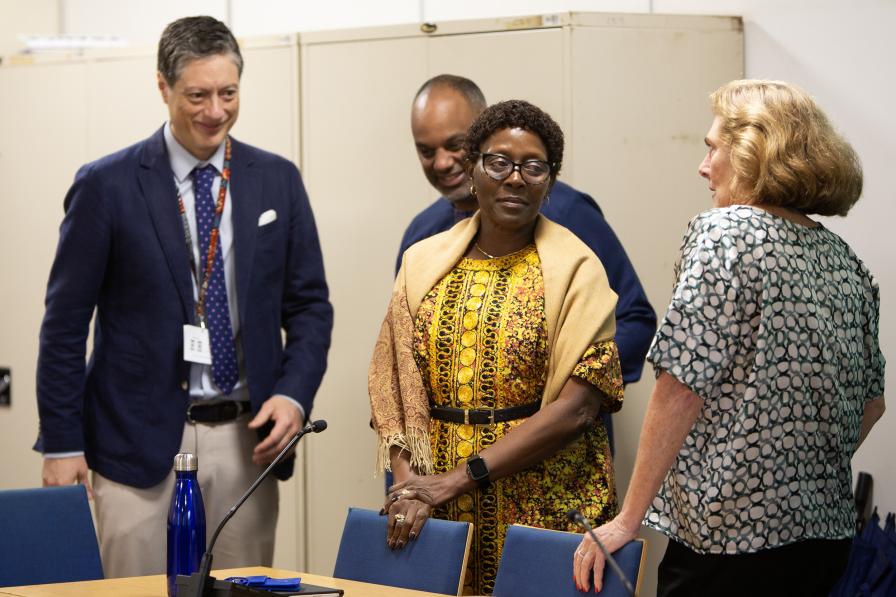
(L-R) Jorge Laguna-Celis, Head of the 10YFP Secretariat, UNEP, and Elizabeth Maruma Mrema, Deputy Executive Director, UNEP, confer with Giovanna Valverde, Co-Chair of the 10YFP Board
